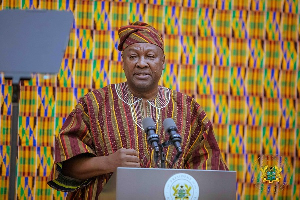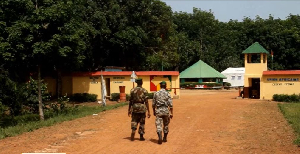Last Thursday, Ghana woke up to witness the terrific scene of a ninety year old grandmother being lynched to death on suspicion of being a "witch". The most surprising part of the scene was that, some people were seen standing aloof as this old woman gradually, but painfully exited the world. Why didn't any of these people attempt to rescue her? Why didn't the assailants have mercy on her? The answer is simple, all those present believed and accepted her as a witch, and as such, posed a "real" existential threat to their lives and must be avoided at all cost, even at the cost of her life. In other words, it emphasised the rejection of "people" like #AkuaDenteh by their families (in some instances) and their respective communities.
If these people are seen as existential threat, and are not welcomed, would they be safe and accommodated in their communities when camps that offer a sort of "safety" for them are abolished outrightly without reservations?
These and others make the debate as to whether witch camps in Ghana should be closed down more complicated than can be imagined. Closing down the witch camps may appear the way to fighting witchcraft on the surface. However, upon a second look, it may further endanger the lives of the victims if some structural changes are not made before its closure. Some of these structural changes must among other things include:
1. Working to first clamp down on the witch-finding shrines which accuse people of being witches.
2. Instituting a care home in the affected communities were such vulnerable people to be rescued could be catered for. This is very crucial as most of these people may not necessarily be readily accepted by their families and communities, once they return. Not putting such structures means that they would be further exposed to danger and assault, than it is in the camps.
3. At the heart of witchcraft accusation and victimisation is ignorance. There must be a conscious effort to educate people to relearn, learn and unlearn some of these hideous beliefs which transcends into practices.
4. Victims of witchcraft accusation are mainly poor people. The fact that few people are accused of witchcraft in wealthy families and communities make witchcraft victimisation a disease of the POOR. A fight on poverty means a fight on witchcraft .
5. Religious groups must reorient themselves by not capitalising on the fears, frustrations and anxieties of people to fuel beliefs and tensions associated with witchcraft.
6. Breaking down patriarchal barriers in communities that tend to make women the vulnerable elements in the society. These include among other things reexamining rules on traditional inheritance, marriage and land tenure systems.
I am of the firm believe that until these structural changes are made, the camps (even though products of patriarchy) must be allowed to stand, as they provide a relatively "safer" place for these women, than in the wider community where they stand severe verbal and physical assault , like what we witnessed in the case of Madam Akua Denteh in the Savanna Region.
Opinions of Sunday, 2 August 2020
Columnist: Richard Adjei















